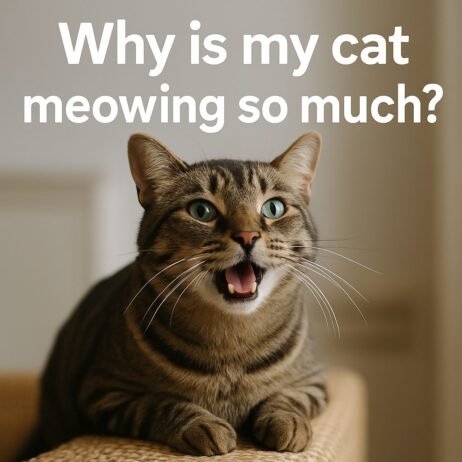Why is my cat meowing so much?
- 25 September 2025
- BuyAPet Editorial Team
- All Cats, Cats and Dogs
Why is my cat meowing so much?
From chatty greetings to midnight yowls, cats have a lot to say. Here’s how to decode the noise—and when to take action—using simple, vet-informed tips for UK cat parents.
Contents
Common reasons for constant meowing
Hunger or routine changes
Cats lobby hard when mealtimes slip. Keep a consistent schedule and measure portions. Automatic feeders can help with early-morning serenades.
Wants access or attention
Meows at closed doors, the cupboard with treats, or when you sit down? That’s a request. Reward calm behaviour; avoid reinforcing loud demands.
Social cats are chatty
Some breeds (e.g., Siamese) and individuals simply talk more. Provide play and short, frequent interactions spread through the day.
Pain or illness
Increased vocalisation can signal hyperthyroidism, high blood pressure, dental pain, urinary issues and more—especially in older cats.
Night-time restlessness
Crepuscular cats wake at dawn. Add evening play + a late feed to reduce 4am performances. For seniors, ask your vet about cognitive changes.
Mating calls (not neutered/spayed)
Unneutered males & females can yowl loudly. Neutering/spaying usually reduces roaming and vocalising.
Quick checklist: rule out the basics
| Check | What to do |
|---|---|
| Food & water | Feed on a schedule, fresh water daily, consider a puzzle feeder for mental stimulation. |
| Litter tray | Keep it clean (scoop daily). Many cats prefer 1 tray per cat + 1. |
| Play needs | Two 10–15 minute play bursts daily (wand toys work well). Finish with a small meal. |
| Environment | Offer high perches, hiding spots, and a quiet place to retreat. |
| Stress | New pets, building work, visitors or moving home can increase meowing. Add predictability and safe spaces. |
Kittens vs adults vs seniors
Kittens
Often vocal when hungry, lonely or exploring boundaries. Use calm routines, gentle handling and plenty of play.
Adults
Sudden changes in volume or frequency? Review the checklist and consider a health check if it persists.
Seniors
Night yowling, confusion or pacing can relate to high blood pressure, pain or cognitive decline—speak to your vet.
Multi-cat homes
Resource competition increases noise. Provide multiple bowls, litter trays and resting spots in separate areas.
When to call your vet
If meowing is new, intense, or paired with weight loss, changes in thirst/toileting, vomiting/diarrhoea, crouching, hiding, or any “not themselves”, book a check-up. Keep a short diary (times, triggers, food, litter use) to help your vet diagnose quickly.
